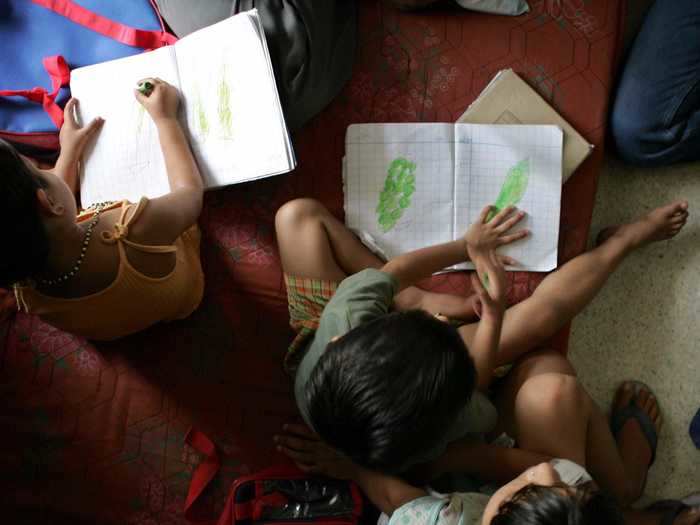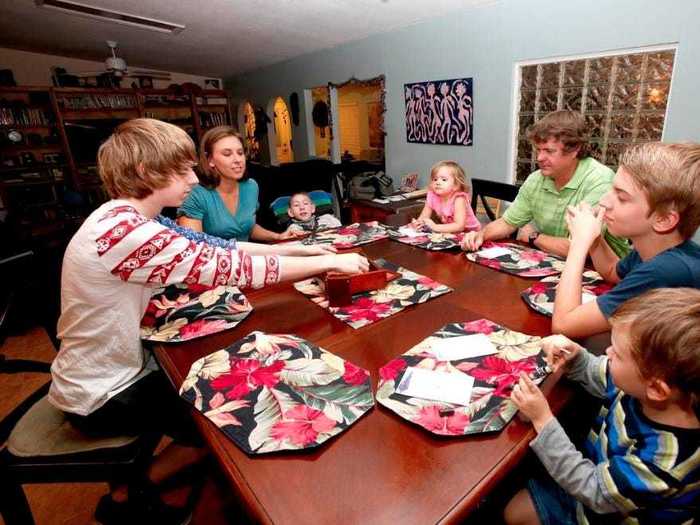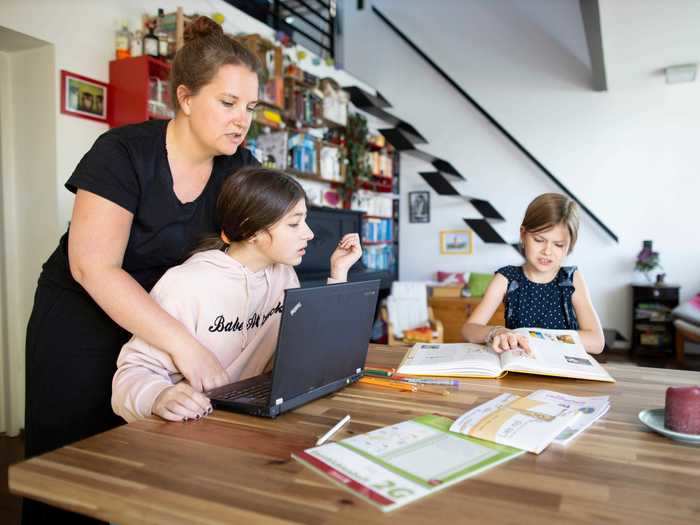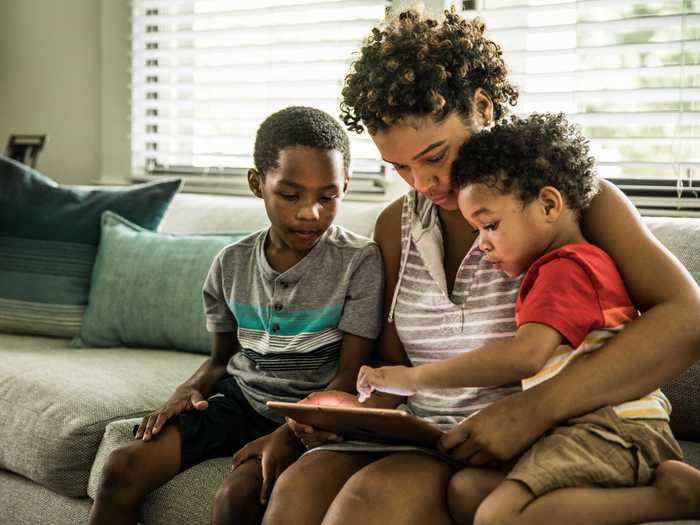1 in 5 kids in China's Hubei province showed depression symptoms after quarantine. Here's what parents can do to help their children avoid this.
Amy Morin
- Recent research out of China indicates that 1 in 5 children who had been quarantined in the Hubei province reported symptoms of depression and anxiety while under lockdown, and even after.
- Amy Morin, a psychotherapist and licensed clinical social worker, says it may be too early to tell what kind of long-term effects the experience of being under quarantine may have on some children.
- To help your own children cope during challenging time, Morin says to use empowering language, validate their fears and emotions, schedule fun activities, and help them stay virtually connected to friends and family.
- Visit Business Insider's homepage for more stories.
This pandemic appears to be having serious consequences on kids' mental health — at least according to early research coming out of China.
Kids in China are showing signs of depression — even after quarantine has ended. Learning more about what's causing this could help parents in the US prevent mental health problems before they start, or at least get them treated if they see early warning signs.
Depression among children in ChinaResearchers examined 1,784 children in the second through sixth grades of schools in the Hubei province of China to assess their mental health following shutdowns caused by the pandemic.
The study, which was published in April of 2020, discovered that about one in five children experienced symptoms of depression after being out of school for one month. The anxiety rates were almost as high.
It's too early to tell what the long-term mental health effects on children might be. Will depression and anxiety rates go down once society settles into a "new normal"? Or might they continue to struggle in the future with the effects of quarantine? Will kids be traumatized by their experiences?
Fortunately, being proactive about children's mental health during this difficult time might help address and prevent mental health issues before they get worse.
What US parents can do nowIt's not surprising that children in China were experiencing higher rates of mental illness following the quarantine. They had encountered complete disruptions to their lives, their after school activities had been removed, and they weren't able to spend time with their friends.
Additionally, many of them were likely experiencing distress about the pandemic itself. They may have been afraid of getting sick, or they may have recognized that their families were under financial distress. They may have also been worried about their loved ones' health.
Fortunately, there are some things parents in the US can do right now to help improve their children's mental health. Sometimes, small changes can make a big difference in a child's overall well-being — especially during a crisis.
Here are some strategies that can improve kids' mental health right now:
Read the original article on Business InsiderREAD MORE ARTICLES ON
Popular Right Now
Popular Keywords
Advertisement






